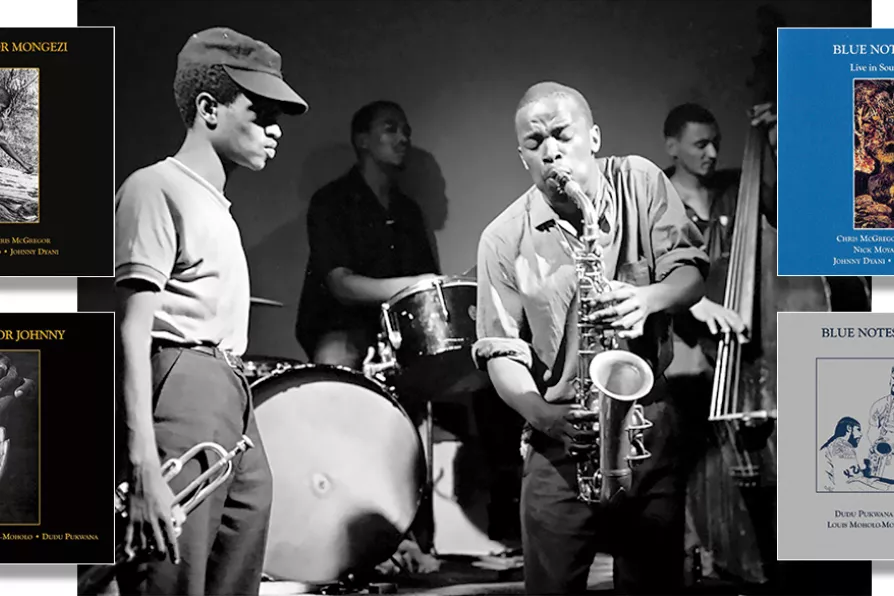MARIA DUARTE reviews Desperate Journey, Blue Moon, Pillion, and Wake Up Dead Man: A Knives Out Mystery

 Members of the legendary Blue Notes sextet, trumpeter and flautist Mongezi Feza and saxophone maestro Dudu Pukwana jamming in a basement club in Hillbrow, a district of Johannesburg, 1962
[Jurgen Schadeberg/Unesco]
Members of the legendary Blue Notes sextet, trumpeter and flautist Mongezi Feza and saxophone maestro Dudu Pukwana jamming in a basement club in Hillbrow, a district of Johannesburg, 1962
[Jurgen Schadeberg/Unesco]
IT'S a significant jazz moment: the re-issue of four powerful, vibrant and deeply moving albums on Ogun Records of the Blue Notes, the South African band which fomented so much dynamism and change in British jazz when they released themselves from apartheid and arrived in London after playing at the 1964 Antibes Jazz Festival.
Their first appearance in 1965 at Ronnie Scott’s Old Place in Soho’s Gerrard Street introduced astonishing new sounds, new beats, new inspiration, new musical resistance and the inspiration of direct African artistry into the British jazz scene.

New releases from The Dreaming Spires, Bruce Springsteen, and Chet Baker

CHRIS SEARLE pays tribute to the late South African percussionist, Louis Moholo-Moholo

Re-releases from Bobby Wellins/Kenny Wheeler Quintet, Larry Stabbins/Keith Tippet/Louis Moholo-Moholo, and Charles Mingus Quintet

STEVE JOHNSON, CHRIS SEARLE and TONY BURKE review new releases from Steve Knightley, Jupiter & Okwess, Jason Palmer, Lisa Knapp and Gerry Driver, Kin'Gongolo Kiniata, Ingrid Laubrock/Tom Rainey, Dan Sealey, Simin Tande, PAZ










